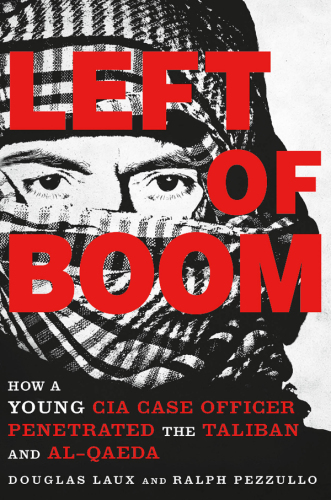
Left of Boom
How a Young CIA Case Officer Penetrated the Taliban and Al-Qaeda
کتاب های مرتبط
- اطلاعات
- نقد و بررسی
- دیدگاه کاربران
نقد و بررسی

February 29, 2016
Smith, a pseudonymous CIA case officer, aided by Pezzullo (Zero Footprint), recounts his two-year stint trying to infiltrate and destroy the bomb-making network of the Afghan Taliban. The authors describe in detail the techniques, dangers, and stresses of creating a network of Afghan sources, some of whom are actual Taliban commanders. This is an unvarnished, critical look at the inner workings of the CIA, and seeing the organization function through Smith’s eyes can be both inspiring and disheartening. The field operatives, middle-age careerists, and enthusiastic newcomers generally demonstrate patriotism, intelligence, and sacrifice; the agency itself—perhaps unsurprisingly—is portrayed as overly political and incredibly bureaucratic. Smith is able to present unique descriptions of the psychological stresses endured by the CIA case officers who are forced to lie to even their closest family and friends about what they do, where they are, and whom they work for. It’s a fascinating and engaging look inside the fast-paced and dangerous daily workings of today’s CIA, and Smith reveals in stark terms that the personal stresses he endured were as dangerous as the physical threats he faced operating alone among the world’s most dangerous terrorists. Agent: Eric Lupfer, William Morris Endeavor.

March 1, 2016
A heavily redacted tale of how recruiting sources within the Taliban from top-secret CIA encampments in Afghanistan is exhilarating but not conducive to maintaining healthy relationships back home. Smith, a pseudonym, spent several years on the ground in remote areas of Afghanistan, clashing with agency bureaucracy, growing a large beard, achieving fluency in several dialects of the local language, and occasionally being mistaken for a local. With the aid of Pezzullo, a prolific collaborator on the memoirs of those in Special Forces and the intelligence community (Zero Footprint, 2016, etc.), Smith recounts his swashbuckling exploits in inelegant prose, distinguished chiefly by the conceit that huge amounts of it--lone words, whole paragraphs, occasionally the majority of a page--are visibly redacted. An example: "After a month of playing cowboy, I returned to the daily grind of Langley and started dating a sweet brunette named Hannah, ------ ------------------------------ ----------------------- -------------- --- -------. Determined to maintain my cover, I told her, Austin, and my other friends that I worked for a ------------ (private company)." Once the author moves from headquarters to the redacted but easily identifiable province in Afghanistan where he was first stationed, the redactions become ever longer and more frequent, leaving major questions for readers. One fully redacted paragraph even has a footnote sourcing the unshown information to a Wikipedia article. While Smith (purportedly) had little difficulty mastering the language and cultivating sources in hostile territory, maintaining his cover for his girlfriends was another matter, and his work led to the demise of multiple romances. Many friends, he learned, "thought I was deliberately being mysterious to make it appear that my life was more interesting than it was. Ironically, some of them thought that I wanted them to think that I was a spy." A highly amped, --------- book that ------- readers will find --------.
COPYRIGHT(2016) Kirkus Reviews, ALL RIGHTS RESERVED.

























دیدگاه کاربران